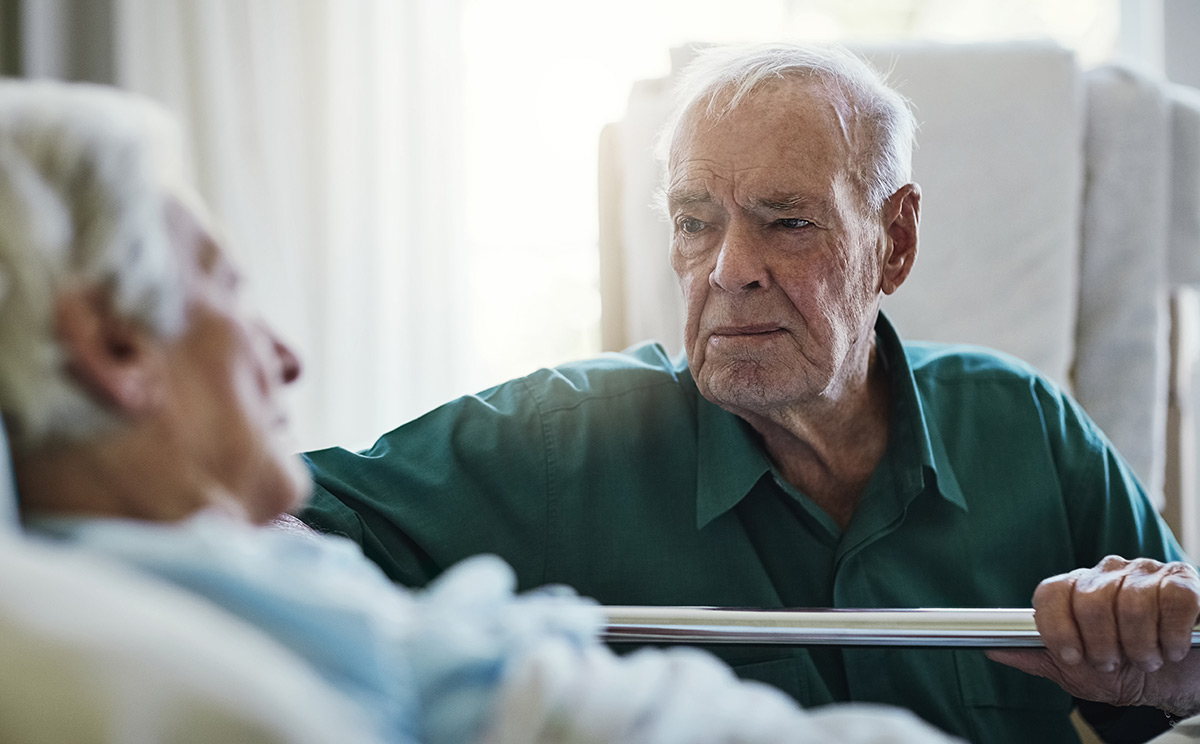Assisted dying

The Church of Scotland has traditionally supported the current law which prohibits assisted dying. This position is currently being reviewed, as we find that, as in wider society, there is a diversity of opinion in the Church on this issue. A Report has been prepared for consideration at the General Assembly, which will be debated on Monday 19 May 2025.
The Church has extensive experience of walking with people in the final stages of their lives, in the support of family and friends of a dying person, and through marking someone's death by leading funeral services. We support the urgent need for greater provision of palliative and end of life care.
Response to the Proposed Assisted Dying for Terminally Ill Adults (Scotland) Bill
The proposed Assisted Dying for Terminally Ill Adults (Scotland) Bill is a proposal for a Member's Bill by Liam McArthur MSP, Scottish Liberal Democrat Member for Orkney Islands. The Bill, if it was to become a new law, would allow terminally ill adults in Scotland to ask for assistance in ending their own lives.
The Public Life and Social Justice Programme Group submitted a response to the bill during the consultation on 16th August 2024. The full text of the response is now available to read online.
Pastoral Care
The experience of Church of Scotland Parish ministers in accompanying people in the final stages of their life and their support for grieving families and friends provides an important insight into issues around living and dying well. Our experiences also emphasise the need to balance community and interpersonal relationships with personal autonomy . We are conscious that assisted dying has implications for a range of people, including those living with disability or impairment, or those who may feel they are a burden on family, friends or the state. A change which would allow greater personal choice for an individual will have far reaching repercussions for some of the most vulnerable people in our society.
Sanctity of life
Our understanding of human life is that it is a gift from God, and that all people are made in God's image. There is a very special value and dignity for every life, which is not dependent on the quality of experience of a particular life. Human life is particularly, as we are created in God's image. At the heart of our concern is a conviction that it is the right and duty of the Church, of society, and of each one of us to uphold and protect the dignity and worth of human life.
A good life, a good death
Scottish society today is not very good at talking about death or confronting our mortality. The Christian tradition provides us with structures of hope, meaning and new possibilities even in the midst of pain and suffering. In a death-denying culture such as our own, Christianity enables us to look at death quite differently from the culture around us, offering us rituals, prayers, scriptures and communities that embody and live out our belief in the resurrection. This in turn provides both life and death with new meaning. This is important.
Our beliefs and understandings of the world help us to die well. But our beliefs about life and death don't miraculously appear at the end of our lives. We die in precisely the way that we live. Dying well requires that we live well, not just at the end of our lives but throughout the whole of our lives. In other words, the time to begin to develop the types of beliefs and practices that will be helpful to us as we face death is not when we are struck by illness, but rather in the practices of everyday life during seasons of illness and health. The Church of Scotland resolutely affirms that human life is not made less dignified or worthy by limitations in capacity.
Resource
- A short video, featuring voices of people within the Church of Scotland, expressing differing opinions around this issue. This video which was used to introduce the issue to Presbytery conversations on this topic, which took place in autumn 2024.